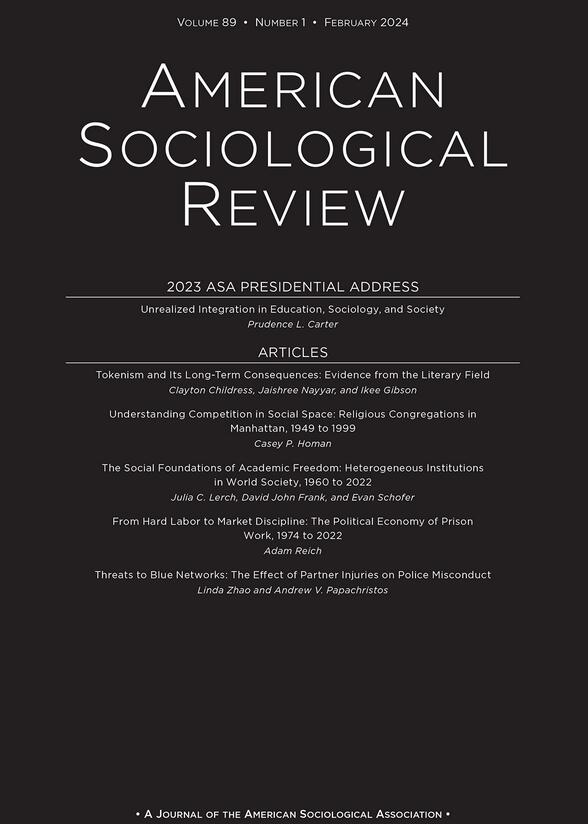Online Conspiracy Groups: Micro-Bloggers, Bots, and Coronavirus Conspiracy Talk on Twitter
IF 6.2
1区 社会学
Q1 SOCIOLOGY
引用次数: 4
Abstract
Conspiracies are consequential and social, yet online conspiracy groups that consist of individuals (and bots) seeking to explain events or a system have been neglected in sociology. We extract conspiracy talk about the COVID-19 pandemic on Twitter and use the biterm topic model (BTM) to provide a descriptive baseline for the discursive and social structure of online conspiracy groups. We find that individuals enter these communities through a gateway conspiracy theory before proceeding to extreme theories, and humans adopt more diverse conspiracy theories than do bots. Event-history analyses show that individuals tweet new conspiracy theories, and tweet inconsistent theories simultaneously, when they face a threat posed by a rising COVID-19 case rate and receive attention from others via retweets. By contrast, bots are less responsive to rising case rates, but they are more consistent, as they mainly tweet about how COVID-19 was deliberately created by sinister agents. These findings suggest human beings are bricoleurs who use conspiracy theories to make sense of COVID-19, whereas bots are designed to create moral panic. Our findings suggest that conspiracy talk by individuals is defensive in nature, whereas bots engage in offense.在线阴谋团体:微博、机器人和推特上的冠状病毒阴谋论
阴谋是后果性的和社会性的,然而由个人(和机器人)组成的在线阴谋团体试图解释事件或一个系统,这在社会学中被忽视了。我们提取了Twitter上关于COVID-19大流行的阴谋言论,并使用biterm主题模型(BTM)为在线阴谋团体的话语和社会结构提供了描述性基线。我们发现,个人在进入极端理论之前,会先通过门户阴谋论进入这些社区,而人类采用的阴谋论比机器人更多样化。事件历史分析表明,当个人面临COVID-19病例率上升的威胁并通过转发获得他人的关注时,他们会同时发布新的阴谋论和不一致的理论。相比之下,机器人对病例率上升的反应较弱,但它们更一致,因为它们主要在推特上发布有关邪恶特工如何故意制造COVID-19的信息。这些发现表明,人类是使用阴谋论来理解COVID-19的能工巧匠,而机器人的目的是制造道德恐慌。我们的研究结果表明,个人的阴谋论本质上是防御性的,而机器人则是进攻性的。
本文章由计算机程序翻译,如有差异,请以英文原文为准。
求助全文
约1分钟内获得全文
求助全文
来源期刊

American Sociological Review
SOCIOLOGY-
CiteScore
13.30
自引率
3.30%
发文量
35
期刊介绍:
The American Sociological Association (ASA) is a non-profit membership association established in 1905. Its mission is to advance sociology as a scientific discipline and profession that serves the public good. ASA is comprised of approximately 12,000 members including faculty members, researchers, practitioners, and students in the field of sociology. Roughly 20% of the members work in government, business, or non-profit organizations.
One of ASA's primary endeavors is the publication and dissemination of important sociological research. To this end, they founded the American Sociological Review (ASR) in 1936. ASR is the flagship journal of the association and publishes original works that are of general interest and contribute to the advancement of sociology. The journal seeks to publish new theoretical developments, research results that enhance our understanding of fundamental social processes, and significant methodological innovations. ASR welcomes submissions from all areas of sociology, placing an emphasis on exceptional quality.
Aside from ASR, ASA also publishes 14 professional journals and magazines. Additionally, they organize an annual meeting that attracts over 6,000 participants. ASA's membership consists of scholars, professionals, and students dedicated to the study and application of sociology in various domains of society.
 求助内容:
求助内容: 应助结果提醒方式:
应助结果提醒方式:


